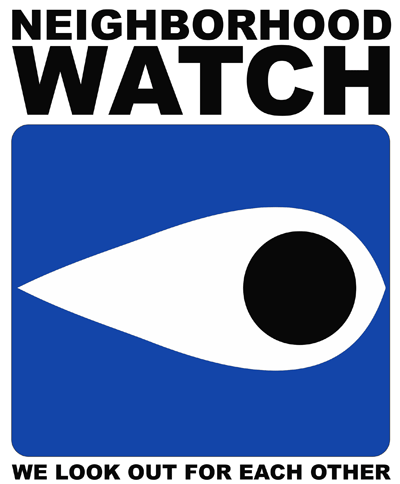neighborhood watch
|
A Checklist for starting a neighborhood watch program.
You Will Need:
|
To Add Excitement:
- Mix business with pleasure - allow attendees time to socialize.
- Seek out neighborhood go-getters - civic leaders and elected officials to be your advocates and mentors.
- Work with such existing organizations as citizens' association, tenants' association, or housing authorities.
- Provide speakers on topics of community interest.
- Link crime prevention into activities promoted by other groups: child protection, anti-vandalism projects, community service, arson prevention, recreation activities for young people.
- Start a neighborhood newsletter.
To Build Partnerships:
- Police Departments and Sheriffs' office's endorsement is critical to a Watch group's credibility. These agencies are the major sources of information on local crime patterns, crime prevention education, and crime reporting.
- Local businesses and organizations can help provide fliers and a newsletter, offer meeting places, and distribute crime prevention information. Ask an electronics store to donate cellular phones.
- Libraries can provide research materials, videos, computers, and meeting space.
- Media can aid Neighborhood Watches by publicizing recruitment drives.
- Look to volunteer centers, parent groups, and labor unions for advice on recruiting volunteers.
- Teenagers are valuable resources. They can be an integral part of a citizens' patrol including biking and rollerblading to scout the neighborhood.
- Places of worship can provide meeting space and a good source of volunteers.


